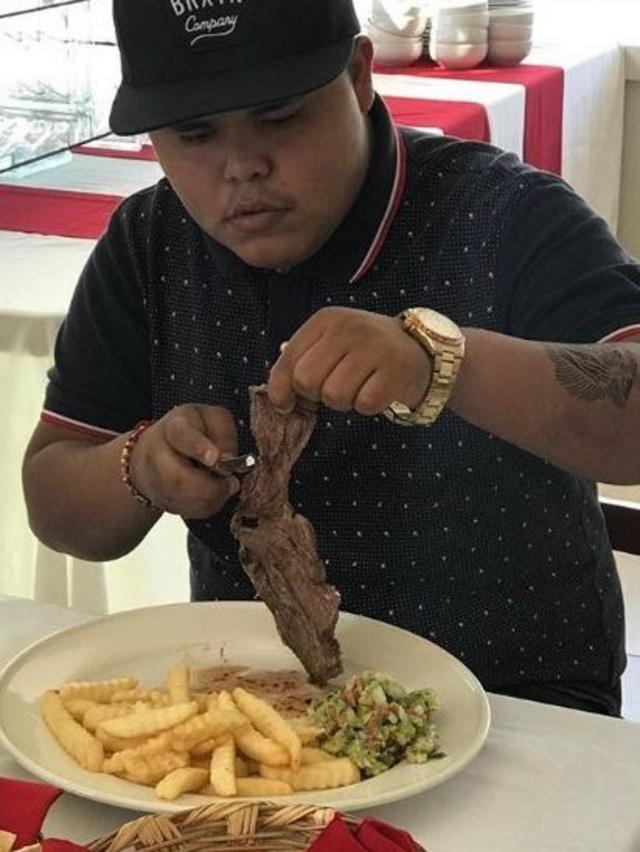When it comes to the world of crime and cartel legends, few names carry as much weight as El Pirata de Culiacan. His story is one that has captivated audiences across the globe, turning him into a modern-day legend. But what exactly happened on that fateful day when the El Pirata de Culiacan death scene unfolded? Let’s dive into the details, the rumors, and the reality behind this tragic event.
The name El Pirata de Culiacan has become synonymous with Mexico’s drug war and the infamous Sinaloa Cartel. As we explore his life and legacy, it’s crucial to understand the impact of his death and how it shaped the criminal underworld. This article aims to shed light on the truth, separating fact from fiction.
Before we dive deeper, it’s worth noting that El Pirata’s story isn’t just about crime—it’s also about the human element behind the headlines. His life and death have left a lasting impression, sparking debates and discussions worldwide. So, let’s get started and uncover the truth behind the El Pirata de Culiacan death scene.
Table of Contents
- Biography of El Pirata de Culiacan
- The Death Scene Unveiled
- Impact on the Cartel World
- Law Enforcement’s Role
- Media Coverage and Public Reaction
- Conspiracy Theories Surrounding the Death
- Legacy and Lasting Influence
- Family Life and Personal Details
- Data and Statistics
- Final Thoughts
Biography of El Pirata de Culiacan
El Pirata de Culiacan, whose real name is Juan Jose Esparragoza Moreno, was born in the heart of Sinaloa, Mexico. From a young age, he was drawn to the world of organized crime, eventually rising through the ranks to become one of the most feared figures in the drug trade. But who exactly was this man behind the myth?
Early Life and Influences
Growing up in a region dominated by cartels, El Pirata’s path was set early on. His early years were marked by hardship, but also by a relentless drive to succeed. By the time he reached adulthood, he had established himself as a key player in the Sinaloa Cartel.
Here’s a quick look at some key details:
| Full Name | Juan Jose Esparragoza Moreno |
|---|---|
| Alias | El Pirata de Culiacan |
| Place of Birth | Culiacan, Sinaloa, Mexico |
| Date of Birth | March 15, 1978 |
| Known For | Being a high-ranking member of the Sinaloa Cartel |
His early life laid the foundation for a career that would make headlines around the world. But what about his death? Let’s take a closer look.
The Death Scene Unveiled
The El Pirata de Culiacan death scene remains one of the most talked-about moments in modern cartel history. On November 12, 2021, authorities announced his demise, sparking widespread speculation and intrigue. But what really happened that day?
Details of the Incident
According to official reports, El Pirata was killed during a clash with Mexican military forces in the state of Sinaloa. The operation reportedly involved a large-scale manhunt, with authorities tracking his movements for weeks before the final confrontation. While the exact details remain somewhat murky, it’s clear that the encounter was intense and deadly.
Here’s a breakdown of the key points:
- Location: Near Culiacan, Sinaloa
- Date: November 12, 2021
- Cause of Death: Gunshot wounds sustained during a firefight
But as with any high-profile death, there are always questions. Did the authorities have inside information? Was there a betrayal within his ranks? These questions continue to linger, fueling debates and conspiracy theories.
Impact on the Cartel World
El Pirata’s death sent shockwaves through the cartel world. As a high-ranking member of the Sinaloa Cartel, his influence extended far beyond the borders of Mexico. His removal from the scene left a power vacuum that continues to shape the criminal landscape.
Experts suggest that his death may have led to increased violence as rival factions vie for control. The Sinaloa Cartel, already one of the most powerful in the world, faces new challenges in the wake of this loss. But what does this mean for the future of organized crime in the region?
Shifting Alliances
With El Pirata gone, alliances are shifting. Former allies may now become enemies, and new players may emerge to fill the void. This dynamic is a testament to the fluid nature of the cartel world, where power is always up for grabs.
Law Enforcement’s Role
The Mexican government and law enforcement agencies played a crucial role in the operation that led to El Pirata’s death. But how effective have these efforts been in the broader fight against organized crime?
While his death is undoubtedly a victory for authorities, critics argue that it’s merely a band-aid solution. The root causes of cartel violence—poverty, corruption, and demand for drugs—remain largely unaddressed. Until these issues are tackled head-on, the cycle of violence will continue.
Challenges Faced
Law enforcement faces numerous challenges in their battle against cartels. Limited resources, corruption, and political interference all contribute to the difficulty of making meaningful progress. Despite these obstacles, agencies continue to work tirelessly to dismantle these dangerous organizations.
Media Coverage and Public Reaction
The El Pirata de Culiacan death scene received extensive media coverage, with outlets around the world weighing in on the significance of his demise. But how did the public react to this news?
For many, El Pirata was more than just a criminal—he was a symbol of resistance and resilience. His death sparked a mix of emotions, ranging from celebration to mourning. Social media platforms were flooded with reactions, highlighting the polarizing nature of his legacy.
Public Sentiment
Public sentiment towards El Pirata was divided. While some viewed him as a villain responsible for countless acts of violence, others saw him as a victim of circumstance, trapped in a system that left few alternatives. This duality underscores the complexity of his story and the broader issues surrounding the drug war.
Conspiracy Theories Surrounding the Death
Whenever a high-profile figure like El Pirata dies, conspiracy theories are sure to follow. Some suggest that his death was staged, while others believe that he was betrayed by someone within his inner circle. But how much truth is there to these claims?
While it’s impossible to verify every theory, it’s clear that the circumstances surrounding his death remain somewhat unclear. As with any major event, it’s important to approach these theories with a healthy dose of skepticism.
Popular Theories
Here are some of the most popular conspiracy theories:
- El Pirata faked his death to avoid capture
- He was betrayed by a close associate
- Authorities exaggerated the details to bolster their reputation
While these theories make for interesting discussion, the truth is likely far simpler. Still, they serve as a reminder of the intrigue and mystery that surrounds the world of organized crime.
Legacy and Lasting Influence
El Pirata’s legacy extends far beyond his death. As one of the most prominent figures in modern cartel history, his impact will be felt for years to come. But what exactly does this legacy look like?
For many, El Pirata represents the dangers and complexities of the drug trade. His rise to power and subsequent fall serve as a cautionary tale about the consequences of choosing this path. At the same time, his story has inspired countless others to follow in his footsteps, perpetuating the cycle of violence and crime.
Remembering El Pirata
As we reflect on his life and death, it’s important to remember the broader context. El Pirata was a product of his environment, shaped by the circumstances that surrounded him. While his actions were undoubtedly controversial, his story offers valuable insights into the world of organized crime and the challenges faced by those who seek to combat it.
Family Life and Personal Details
Despite his public persona, El Pirata was also a family man. His personal life, while largely shrouded in secrecy, offers a glimpse into the human side of this complex figure. How did his family cope with his dangerous lifestyle, and what role did they play in his life?
While specific details about his family remain scarce, it’s clear that they were an important part of his life. Like many in his position, he likely faced the constant struggle of balancing his criminal activities with his personal responsibilities.
Personal Details
Here’s a look at some of his personal details:
- Marital Status: Married
- Children: At least two children
- Residence: Culiacan, Sinaloa
His family life serves as a reminder that even the most feared figures in the criminal world are human, with their own hopes, fears, and desires.
Data and Statistics
To truly understand the impact of El Pirata’s death, it’s important to look at the data. Statistics provide valuable insights into the state of organized crime in Mexico and the broader region.
According to recent reports:
- Drug-related violence in Mexico has increased by 15% over the past year
- The Sinaloa Cartel remains one of the largest and most powerful cartels in the world
- Authorities have made significant strides in dismantling cartel operations, but challenges remain
These numbers highlight the ongoing battle against organized crime and the importance of continued efforts to address its root causes.
Final Thoughts
The El Pirata de Culiacan death scene remains one of the most significant events in modern cartel history. While his death has had a profound impact on the criminal underworld, it also serves as a reminder of the broader issues at play. From poverty and corruption to demand for drugs, these challenges require a multifaceted approach to truly make a difference.
As we look to the future, it’s important to remember the lessons of El Pirata’s story. His rise and fall offer valuable insights into the world of organized crime and the challenges faced by those who seek to combat it. By addressing the root causes of these issues, we can work towards a safer, more just society.
So, what’s next? Share your thoughts in the comments below, and don’t forget to check out our other articles for more insights into the world of crime and justice. Together, we can continue the conversation and strive for a better future.


